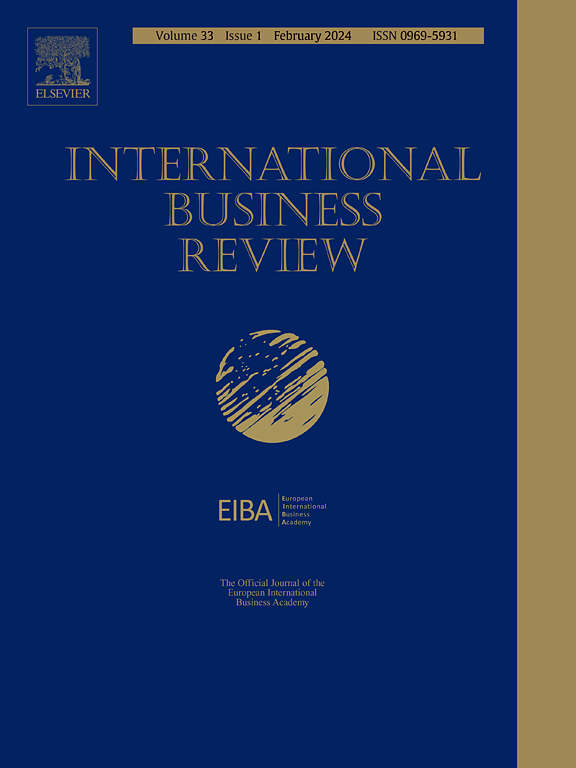外国直接投资的技术含量和制度质量:调查对巴西环境的影响
IF 6.1
1区 管理学
Q1 BUSINESS
引用次数: 0
摘要
研究表明,外国直接投资对东道国的环境既有积极的影响,也有消极的影响。然而,这些截然不同的结果背后的机制尚不清楚。本研究通过分析巴西圣保罗州的区域数据,探讨外商直接投资的技术含量如何影响东道国。此外,借鉴基于制度的观点,本研究考虑了外国直接投资来源国的作用和投资者本国的制度质量。研究结果挑战了普遍适用的“一刀切”FDI观点。高技术和低技术投资都可以促进东道国的可持续发展。然而,外国投资的来源起着至关重要的作用:来自体制框架较弱的国家的外国直接投资可能产生有害影响,无论涉及哪个部门。这些见解对政策制定者和学者具有重要意义,尤其是在新兴经济体的背景下,这表明,FDI的假定好处值得更仔细地审视。本文章由计算机程序翻译,如有差异,请以英文原文为准。
Technological content and institutional quality of FDI: Investigating the effects on the environment in Brazil
Research indicates that Foreign Direct Investment (FDI) can have both positive and negative effects on the host country's environment. However, the mechanisms underlying these contrasting outcomes remain unclear. This study investigates how the technological content of FDI influences the host region by analyzing regional data from the State of São Paulo, Brazil. In addition, drawing on insights from the institution-based view, the study considers the role of the origin of FDI and the institutional quality of the investors' home countries. The findings challenge the commonly applied ‘one-size-fits-all’ perspective on FDI. Both high- and low-technology investments can contribute to sustainable development in the host region. However, the source of the foreign investment plays a critical role: FDI from countries with weaker institutional frameworks can have harmful effects, regardless of the sector involved. These insights carry significant implications for policymakers and scholars, particularly in the context of emerging economies, suggesting that the assumed benefits of FDI warrant closer scrutiny.
求助全文
通过发布文献求助,成功后即可免费获取论文全文。
去求助
来源期刊

International Business Review
BUSINESS-
CiteScore
14.10
自引率
6.90%
发文量
95
审稿时长
62 days
期刊介绍:
The International Business Review (IBR) stands as a premier international journal within the realm of international business and proudly serves as the official publication of the European International Business Academy (EIBA). This esteemed journal publishes original and insightful papers addressing the theory and practice of international business, encompassing a broad spectrum of topics such as firms' internationalization strategies, cross-border management of operations, and comparative studies of business environments across different countries. In essence, IBR is dedicated to disseminating research that informs the international operations of firms, whether they are SMEs or large MNEs, and guides the actions of policymakers in both home and host countries. The journal warmly welcomes conceptual papers, empirical studies, and review articles, fostering contributions from various disciplines including strategy, finance, management, marketing, economics, HRM, and organizational studies. IBR embraces methodological diversity, with equal openness to papers utilizing quantitative, qualitative, or mixed-method approaches.
 求助内容:
求助内容: 应助结果提醒方式:
应助结果提醒方式:


